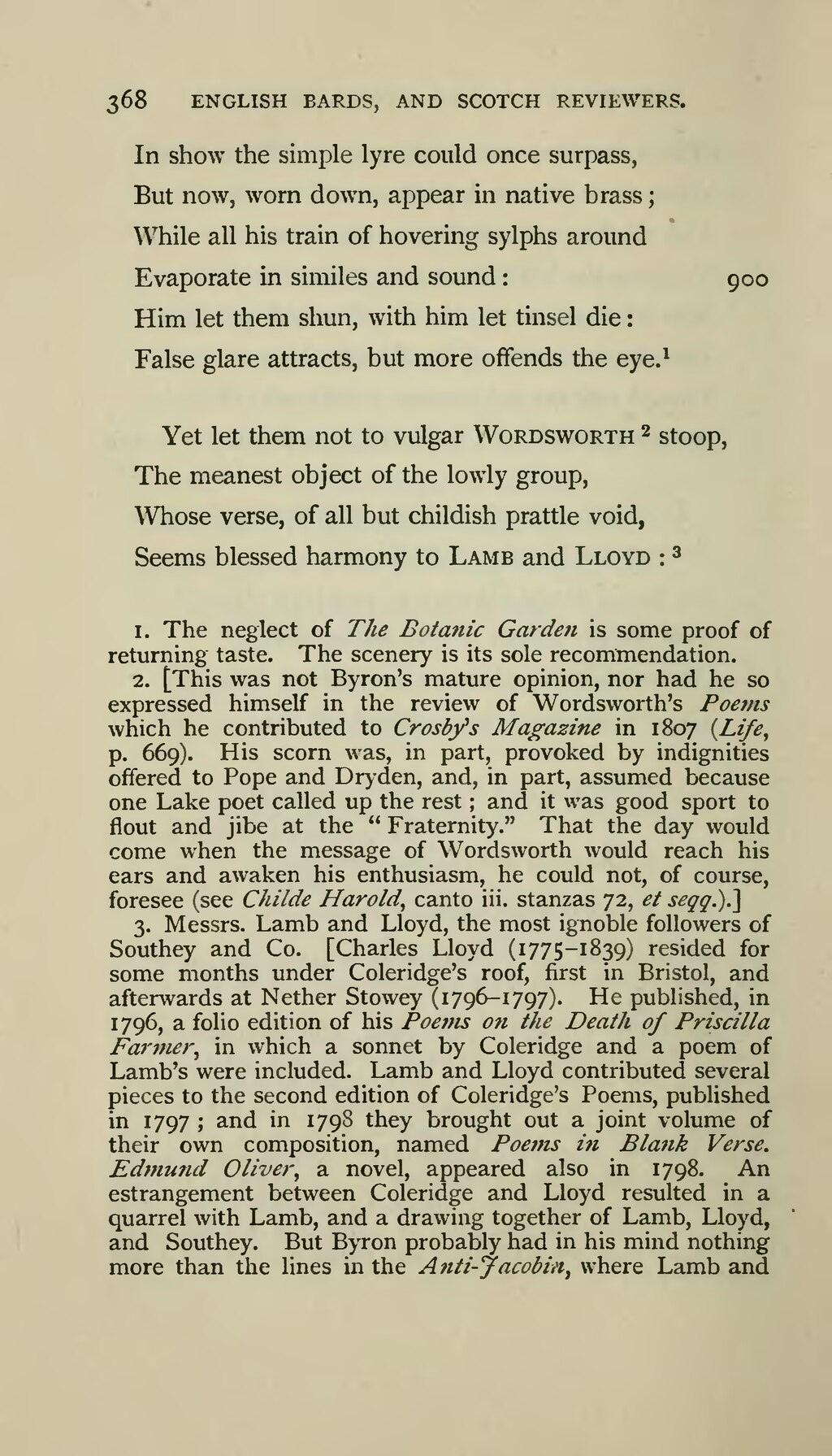368
ENGLISH BARDS, AND SCOTCH REVIEWERS.
In show the simple lyre could once surpass,
But now, worn down, appear in native brass;
While all his train of hovering sylphs around
Evaporate in similes and sound:900
Him let them shun, with him let tinsel die:
False glare attracts, but more offends the eye.[1]
Yet let them not to vulgar Wordsworth[2] stoop,
The meanest object of the lowly group,
Whose verse, of all but childish prattle void,
- ↑ The neglect of The Botanic Garden is some proof of returning taste. The scenery is its sole recommendation.
- ↑ [This was not Byron's mature opinion, nor had he so expressed himself in the review of Wordsworth's Poems which he contributed to Crosby's Magazine in 1807 (Life, p. 669). His scorn was, in part, provoked by indignities offered to Pope and Dryden, and, in part, assumed because one Lake poet called up the rest; and it was good sport to flout and jibe at the "Fraternity." That the day would come when the message of Wordsworth would reach his ears and awaken his enthusiasm, he could not, of course, foresee (see Childe Harold, canto iii. stanzas 72, et seqq.).]
- ↑ Messrs. Lamb and Lloyd, the most ignoble followers of Southey and Co. [Charles Lloyd (1775-1839) resided for some months under Coleridge's roof, first in Bristol, and afterwards at Nether Stowey (1796-1797). He published, in 1796, a folio edition of his Poems on the Death of Priscilla Farmer, in which a sonnet by Coleridge and a poem of Lamb's were included. Lamb and Lloyd contributed several pieces to the second edition of Coleridge's Poems, published in 1797; and in 1798 they brought out a joint volume of their own composition, named Poems in Blank Verse. Edmund Oliver, a novel, appeared also in 1798. An estrangement between Coleridge and Lloyd resulted in a quarrel with Lamb, and a drawing together of Lamb, Lloyd, and Southey. But Byron probably had in his mind nothing more than the lines in the Anti-Jacobin, where Lamb and
